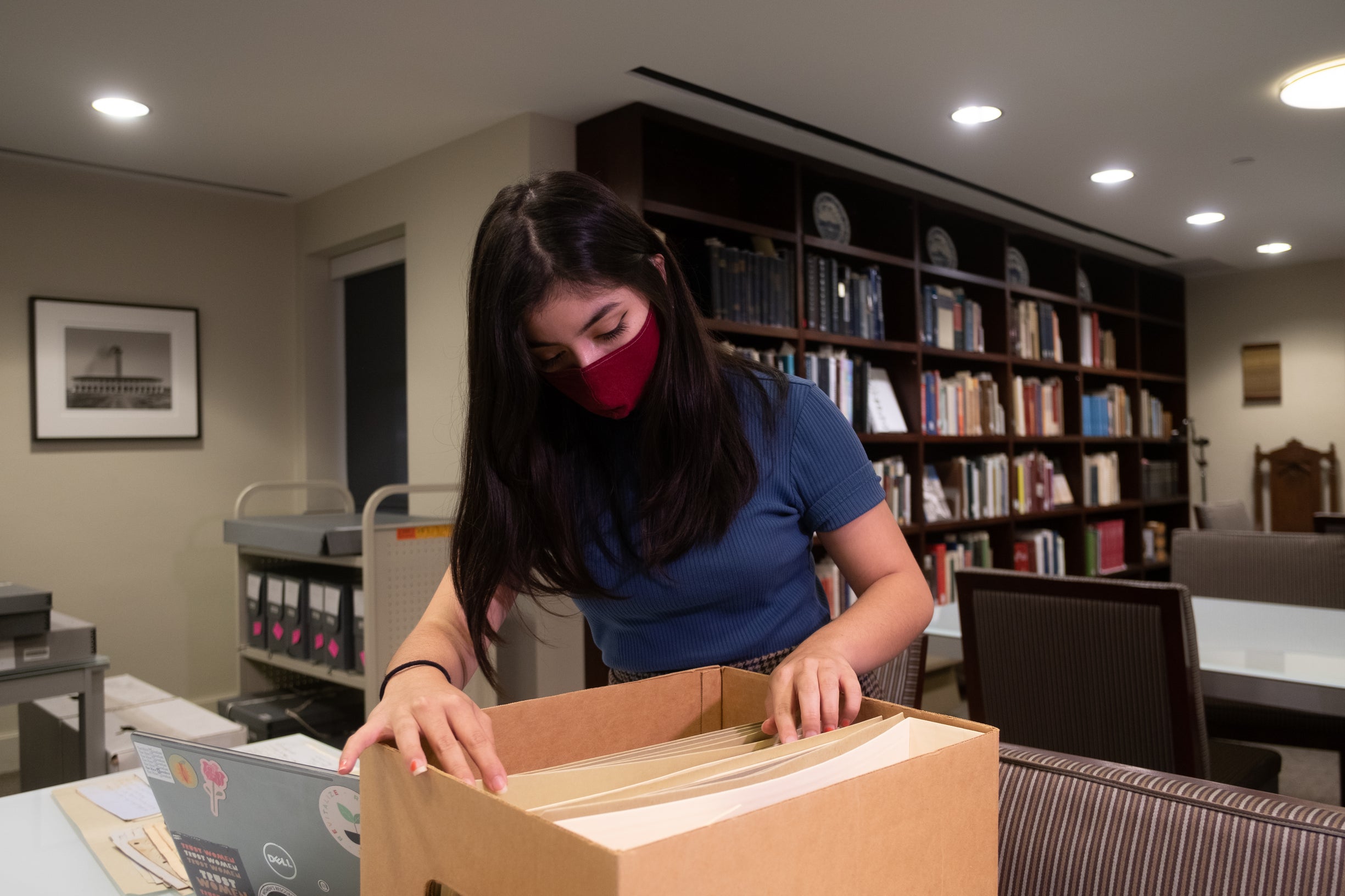Katelyn Landry, Class of 2022 (Jones College), Major: History, Minor: Politics, Law and Social Thought
When I entered Rice, I was the epitome of undecided. I was bouncing back and forth between psychology and English when I took an introductory history course taught by professor Alexander Byrd that focused on historiography — how history is developed, written, preserved and disseminated. As someone who’s been interested in journalism my whole life, this new perspective of history as a constant process of discovery and revision ignited my interest.
I also chose the Politics, Law and Social Thought minor because I entertained the notion of going to law school, and although I’ve ultimately decided not to go down that path, PLST has supplemented my history studies with a greater capacity to analyze in-depth the political and sociocultural contexts of any given historical events.
Of course, once I made this decision, I was presented with the infamous question: “What are you going to do with X degree?” It was a question that hung over my head for a long time, along with an anxiety that I wouldn’t be able to produce the caliber of research for which Rice is celebrated. However, my worries were firmly laid to rest when I was exposed to the vast ocean of opportunities available in the School of Humanities.
As humanities students, especially when we are first starting, we sometimes get discouraged by the false perception that we aren’t doing “real” research. Humanities research may not be in a lab, but it has the potential to be anything and anywhere. Through my work as a student writer in the Office of the Dean of Humanities, I’ve learned about an immense array of opportunities that have enhanced the academic and professional experiences of Rice students and alumni. I’ve met with scholars whose research has taken a variety of dynamic forms, from traversing state parks to interacting with community members of Houston’s historic Jewish neighborhoods, to expanding the scope of the world’s leading database on the trans-Atlantic slave trade.
One of my favorite projects I collaborated on while working in the Dean’s Office was developing a set of profiles on student interns who participated in the School of Humanities’ HEDGE summer internship program. HEDGE financially supported these students and others as they undertook exciting summer internships in diverse fields of interest and work, from updating an international digital art archive to amplifying literary voices from marginalized communities.
A year later, I had the opportunity to experience firsthand the incredible support of the HEDGE program when the School of Humanities provided a stipend that enabled me to live and work in Houston while I interned at Houstonia Magazine, a local publication highlighting all things H-town. As a low-income student, this financial assistance was the deciding factor in my ability to undertake an unpaid internship at Houstonia that proved to be a highly rewarding and formative experience.
My professional pursuits in journalism are a testament to the fact that Rice University not only offers unique opportunities in all its schools, but also provides platforms for students to pursue career fields that may not have dedicated academic programs. I’ve had great opportunities to sharpen my journalistic skills as a student writer at the School of Humanities and as the arts and entertainment editor at Rice’s student-run newspaper The Rice Thresher. But the internships have afforded me invaluable experience and perspectives on the professional world that will allow me to consider where I may best use the skills that I’ve gained throughout my Rice experience.
Of course, these opportunities are about far more than bedazzling resumes — in fact, they’re about more than ourselves. Interning at Houstonia during the tumultuous, unprecedented summer of 2020 prompted me to think seriously about what impact I want to have with my work as a journalist. Throughout my career, I’ve focused on arts journalism, and I realized that the stories that felt most meaningful to me were ones that highlighted people who use art as a channel for community activism and cultural awareness. I encountered several inspiring Houstonians doing this kind of work last summer, from hosting cultural film festivals for young audiences to using sustainable fashion as a platform for empowerment. As I move forward in my career, I intend to continue being a microphone for amplifying marginalized voices who are fighting to make positive change.
Currently, I’m engaged in archival research on the history of slavery and plantation life in Southeast Texas during the 19th century. Working closely with the School of Social Sciences’ department of anthropology and the university’s Woodson Research Center, this internship serves as an example of the many interdisciplinary opportunities offered at Rice. By no means are you confined to programs or initiatives only within your major or minor. Much on the contrary, Rice facilitates interdisciplinary exploration at every level, and provides ample space for you to branch out.
So, while some may argue that there aren’t enough opportunities within the humanities, I would argue that there are so many that FOMO will become a familiar feeling. But this is a good thing — in a world that continues to pose increasingly difficult questions and problems, the broader our perspectives and experiences, the better equipped we will be to offer complex, inclusive and nuanced solutions.


